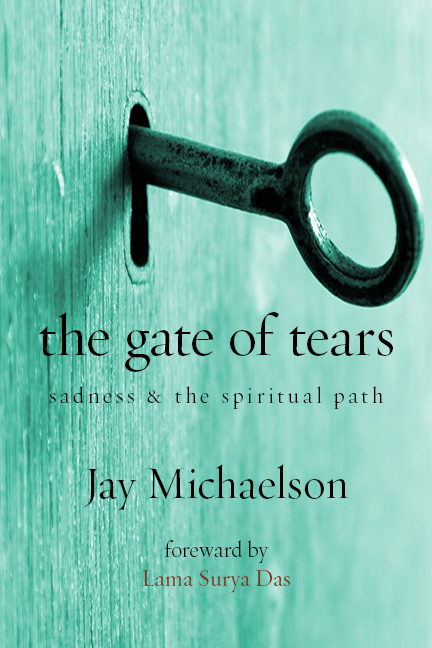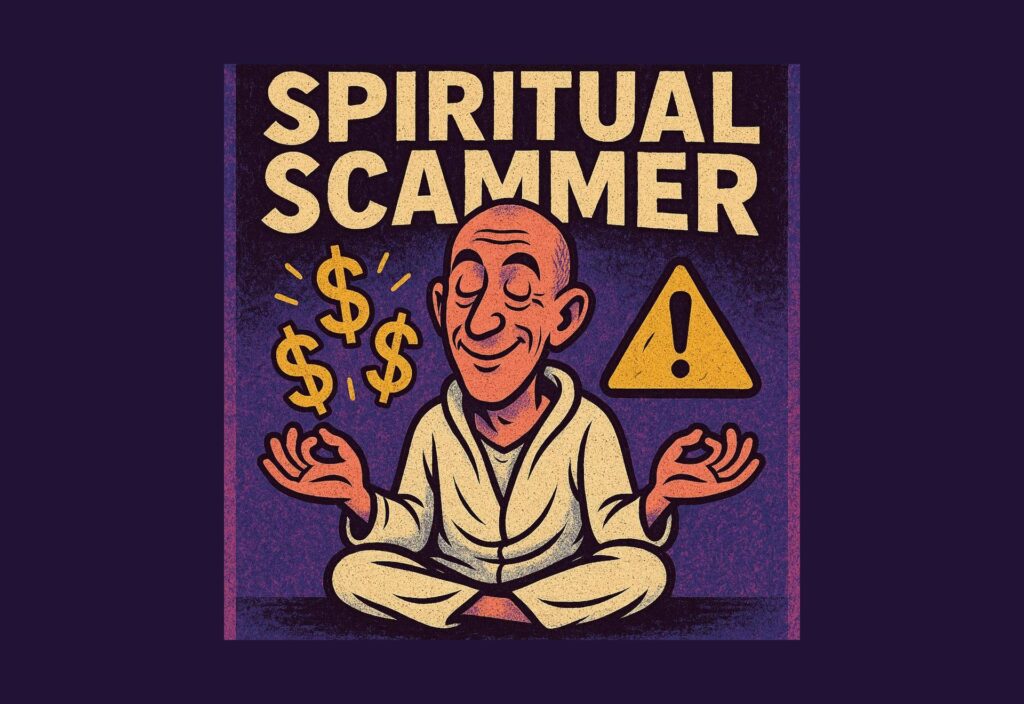The following is excerpted from The Gate of Tears: Sadness and the Spiritual Path by Jay Michaelson, published by Ben Yahuda Press.
In the 1990s, a prominent teacher of what’s called “New Thought”—a/k/a The Secret, the Law of Attraction, the Teach- ings of Abraham—told a group of gay men that they could cure themselves of AIDS by believing themselves to be cured. The catch was, they had to really believe it—and so many of them stopped taking medication (since why take medication if you’re cured) and stopped going to doctors. These men died. Some were friends of my partner. And as far as I know, the teacher was never sued.
I bring this up to share advice that has been learned the hard way: Don’t believe any teacher that promises you that you can get what you want.
In fact, while you’re at it, don’t believe any teacher at all. It’s easy to mistake the cozy feeling of having a mother- or father- figure with having answers to questions that have none. It’s also easy to mistake the feeling of having some control over your ex- istence (as the Law of Attraction promises) for actually having it.
There are many words for such teachings, but I prefer the word “bullshit.”
Of course, you can make yourself happier by focusing on positive things. A positive attitude does help healing (though a negative one can help be realistic about causes and consequences). Even smiling has been shown, physiologically, to bring about more happiness. You can fake it till you make it. And if New Thought helps you take ownership of your life, don’t listen to me. I’m a teacher too, of course.
But the notion that You Can Get What You Want, in the larger sense, is outrageous. It’s obviously and demonstrably false, and offensive, when applied to actual suffering. Did the people in the World Trade Center attract the planes? Did my mother attract cancer?
In fact, from a review of the evidence, it appears that Mick Jagger and the Buddha were right: You Can’t Always Get What You Want. Sometimes you can, and if you try sometimes… well, you know the rest. But other times, the trying is only resistance to what is actually in front of you, and the resistance makes it worse.
Let’s try the anti-law of attraction. Think of something you truly want. Now inhabit the sense of not getting it. Really visu- alize yourself not meeting your most profound desires. Skip the silly stuff—cars and whatnot—and go for the real. Love, suc- cess, health, long life, peace. If you feel sad about failing at your most cherished endeavors, allow the sadness to come without resistance. Make yourself at home there. It can be quite delight- ful, really. Listen to the sounds—of the room, of the city, of the birds chirping, whatever. All this will continue, and change, without you and your longing. Set down the burden.
Personally, I find this kind of self-helpless far more interesting, inspiring, and good than self-help.
In fact, shit happens. And when shit happens, it’s human and beautiful to feel shitty about it. In so many forms of spirituality, as in commercial society, there is shame around sadness, as if it’s a sign of failure—like you’re not doing it right. Even though so many contemplative and philosophical traditions say that sadness is a sign that you are doing it right.
Sadness is not an obstacle on spiritual the path; it is the path itself. “Faith sees best in the dark,” remarked Kierkegaard in one of his sermons. Ordinary sadness, everyday melancholy, the quiet, small pains of life, as well as the more profound loss- es that are part of human life, are the places in which the real spiritual work takes place. Not the coloring of life by seeing it through rose-colored glasses, but the clear, transparent presence of being with life as it actually is.
The bromide that “you can get what you want” is capitalist spirituality writ large. Authentic spirituality as I understand it is more about questioning what you think you want, and relinquishing any expectation of having or keeping it. It is also about truth, and the truth is that people suffer and often can do nothing about it.
In fact, neither the spiritual nor the material repression of sadness reflects the depth of contemplative life. The great irony is that the very effort to feel joy (or relief) prevents its fruition. Perhaps counterintuitively, it is the surrender to sadness that causes it to pass—not the suppression of it. The gestures of opening, making-space, giving-way—these enable a delicious relinquishment, a setting down of the burden, even, perhaps, a kind of wisdom.
Contemplative practice does bring about a deep, abiding joy. Yet this “simple feeling of being,” as one teacher describes it, co- exists quite beautifully with sadness, merges with it like notes in a minor chord. The deep joy of awakening is a happiness not of merriment or exuberance, but a love that reveals itself precisely when sadness or other difficult emotions are allowed to unfold just as they are. It is a joy of relinquishing, allowing, setting down the burden. The spiritual search, then, is really the cessation of searching. No more manipulating experience in order to feel better (what will it be this time?), no more lurching out of the mind for satisfaction. But letting go, letting be, and giving up.
This is what I have called “The Gate of Tears,” through which one finds insight, liberation, even mysticism. The art of being with sadness, and other unwanted houseguests of the mind, brings about an intimacy with what is—what the mystics call the One, the Divine, the Beloved. Crying out in sadness is an expression of holiness and of art. And the tone of sadness is, itself, beautiful in its way. Loneliness arises, and doubt, and occasional regret; this is not symptomatic of pathology but part of the ebb and flow of the human experience.
This kind of spirituality has not made me happy- go-lucky, or a soft-eyed yogi such as one sees on the cover of some New Age magazines. Happily or not, I am still sarcastic, hedonistic, ambitious, and frustrated in traffic. My books and workshops sell much less than those which promise answers, fulfillment, and lots of capitalist stuff.
On the other hand, I have managed to cultivate a kind of mental ‘settling back’ that is always accessible, and invariably reveals a certain flavor of poetry. In subtle, perhaps barely perceptible ways, I find this relinquishment has made me deeply joyful, content, and a little less of a jerk. My conviction is that one may have the direct, intimate experience of painful emotions—even grief, loss, and lack—as they are, as flavors or contours or tones of simply what is. And from that simplicity of coexistent presence there arises an underlying peace that accommodates the tears that fall. That feels worth the tradeoff.
















